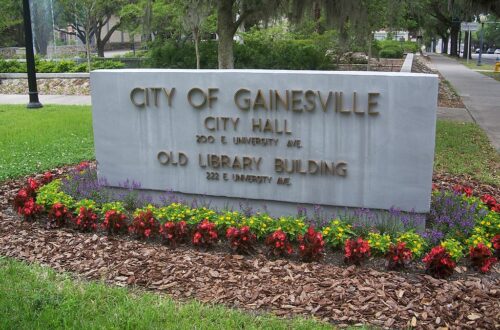The Florida Ethics Commission concluded their review of a complaint against Byron Donalds, the Republican candidate in the race to replace retiring Rep. Francis Rooney, R-Fl. Ultimately, the Florida ethics panel chose to dismiss the complaint against Donalds, citing a lack of “legal sufficiency” to proceed.
The complaint alleged that Donalds had falsely and criminally completed a 2014 application to serve on the board of Florida SouthWestern State College by failing to disclose his previous arrests for distribution of marijuana in 1997 and for receiving bribes in 2000.
Originally the complaint against Donalds was filed in July by his former colleague Kelly Lichter, who served alongside Donalds on the Collier County School Board.
Lichter’s complaint alleged that Donalds concealed his past on three counts: when he applied to serve on the board of trustees for Florida SouthWestern State College, when he applied to the Collier County schools for a board position with the Mason Classical Academy, and when he applied with both the Financial Industry Regulator Authority and Florida Department of Financial Affairs for a license to sell securities.
Most notably, the complaint filed by Lichter included parts of his application submitted to the Department of Education to serve on the Florida SouthWestern State College board of trustees.
The form includes a question asking whether the applicant has ever been “arrested, charged, or indicted for violation of any federal, state, county, or municipal law, regulation, or ordinance.” Donalds filled in the box indicating “No.”
In response to Lichter’s complaint, Donalds accuses Lichter of lying. “I disclosed, as required by Florida law, to the board of Mason Classical Academy and to the Collier County School Board. She was present at that meeting. She could have filed this complaint at any time over the last six years,” he said. He went on further to state that Lichter “is clearly motivated by my rise in the polls.”
Though Donalds has publicly owned up to these arrests, his decision to not acknowledge them in these three occasions laid the groundwork for a potential ethics inquiry. However, Donalds argues that he is not legally required to acknowledge his bribery charge due to its expungement from his record after pleading no contest to bribery and serving two years of probation. Additionally, he states that those records had been sealed.
But what about his charges for the distribution of marijuana?
Donalds argues that this charge had been dismissed after his participation in a Pretrial Diversion program when he was 18. Leon County court records show that Donalds paid a $150 fee for the charge.
The grounds for the Florida Ethics Commission’s decision to dismiss the charge also cited “questions of jurisdiction” and whether or not the complaint’s allegations were sufficient enough for a “violation of the Code of Ethics or other laws within the Commission’s jurisdiction.”
This is not the first time that Donalds’s past arrests have served as a major point of focus in his campaign. In the race for the Florida House District 80 seat in 2016, Donalds’s opponent in the Republican primaries, Joe Davidow, created a website called LyinByron.com in an attempt to inform voters about Donalds’s criminal record.
These allegations of ethical misconduct against Donalds date back to 2014 when a Southwest Florida political blog first made light of this information. However, despite these allegations, Donalds went on to win the Republican nomination and then subsequently went on to win the state seat.
With the ethics panel dismissing Lichter’s complaint, Donalds is favored to clinch the Congressional seat in the heavily-Republican district in Southwest Florida, which includes Cape Coral, Fort Myers, Naples and Marco Island.
Featured image: Byron Donalds in the 2019 Second Step Presidential Justice Forum. Unmodified photo by The White House used under a Creative Commons license. (https://bit.ly/32MUecx)
Check out other recent articles from the Florida Political Review here.





